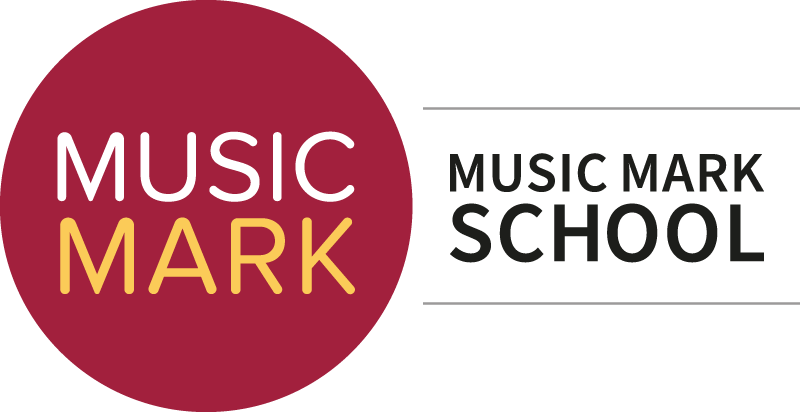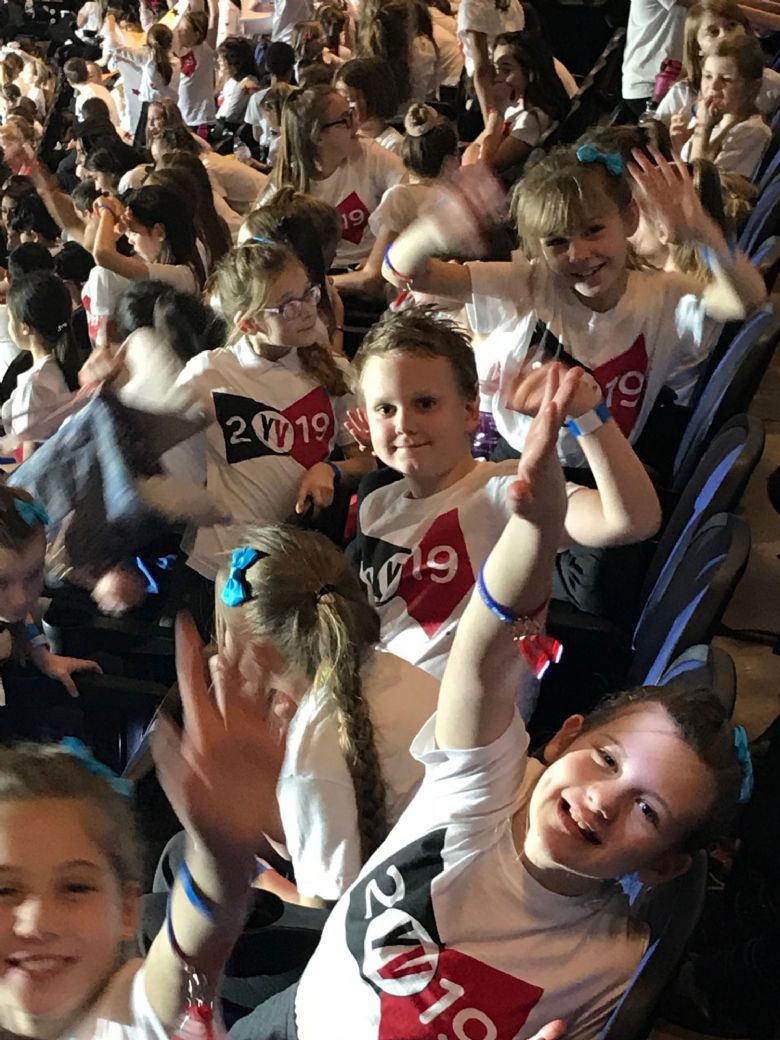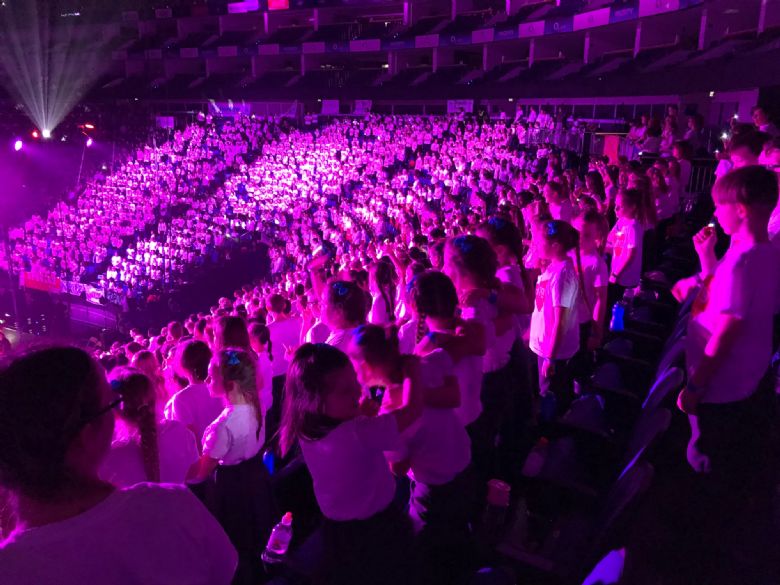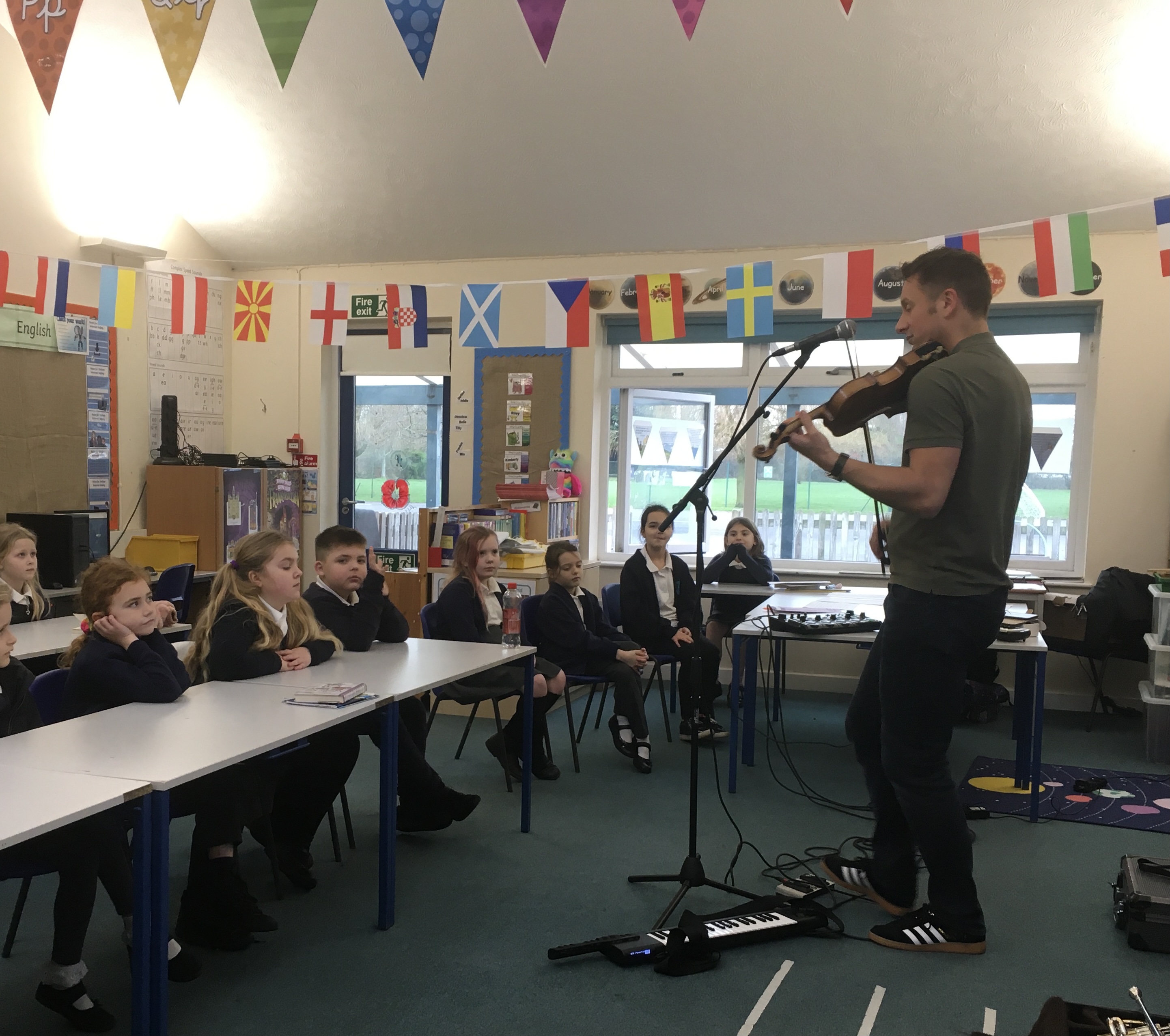Music

Intent
At Brenzett CE Primary School, we are committed to providing a curriculum which is broad and balanced and provides our pupils with opportunities to gain essential knowledge, skills and understanding which will enable them to flourish and reach their full potential academically, physically and artistically. Our intention is to provide our pupils with the opportunities to develop an appreciation of different forms of music and to be able to discuss, express and evaluate the impact music has on them.
We actively participate in Young Voices at the 02 Arena.
 |
 |
| Having a great time! | Spectacular Performance! |

Implementation
Music is highly valued at Brenzett CE Primary School, as we ensure that all of our EYFS, KS1 & KS2 pupils are continuously exposed to quality first teaching.
• Our approach is to provide all pupils with the opportunity to excel and express themselves musically by delivering an extensive programme of high-quality music provision. That is based on building knowledge, the model music curriculum and is bespoke to our setting. • Our wide and expansive range of musical instruments and equipment allows pupils to experience well-resourced music lessons following the national curriculum, whole class instrumental lessons and after school choir and instrumental clubs.
Each Key Stage within the school focuses on age-appropriate skills and uses a range of strategies and interventions to support the pupils.
In Early Years Foundation Stage Pupils explore and use a variety of media through a combination of child-initiated and adult-directed activities. They have opportunities to learn to • Exploring and experiment with musical instruments. • Sing songs, make music and experiment with ways of changing them Key Stage 1 & 2 We maintain a core focus on rhythm, patterns and structure throughout the KS1 and KS2 syllabi, with different age-appropriate focal points alongside this to build a wider understanding of fundamental musical concepts, as described in the National Curriculum, including:
Pitch • Duration
• Music Notation
• Performance
• Musical features
Concepts are explored, recapped and consolidated not only from lesson-to-lesson, but also from year to year; we ensure that learning is continuous.
In Key Stage 1 the children are introduced to sound, duration, pitch, beat and rhythm, instruments and symbols, singing together, solo and ensemble work, timbre, tempo and dynamics throughout the year. Classes get a choice between ocarina and recorder as the instrument they study alongside their main music lessons.
In Key Stage 2 the children learn and embed their knowledge on pitch, rhythmic patterns, scales, melodies, ostinatos, cyclic patterns, rounds, body percussion, time signatures, music notation, tempo, solo and ensemble work, lyrics, melody, musical process, western & non-western music and music technology throughout the year. Classes get a choice between brass, clarinet and ukulele as the instrument they study alongside their main music lessons. These lead to opportunities to then study this as a part of the after-school music provision. Opportunities for performance are provided for all key stage 2 children within the school and as part of the Young Voices programme,
Cross-Curricular Links - Science - Pitch and Sound PE - Selection of music for dance (different genres) and ensuring it's at an appropriate tempo Maths - Notation being referred to as fractions (Crotchet = 1 Whole) ICT - Use of computers to record and produce music
Impact
Throughout every session, children are formatively assessed using some of the following techniques:
• Group questioning
• Individual questioning
• Asking a child to explain a concept back
• Asking a child to assist a peer
• Observations • Group tasks
• Performance
We carefully monitor each child to identify any gaps in knowledge, to assess against the learning objective, and to assess whether certain pupils need additional support to understand the basics, or if they need support in accessing further learning for the gifted and talented.
We also use this information to evaluate whether our lessons are pitched to the right level and adjust tasks and differentiate accordingly. Throughout the entire process, we nurture a safe environment (both physically and emotionally) where it is okay to make mistakes, ask questions and try new things.
